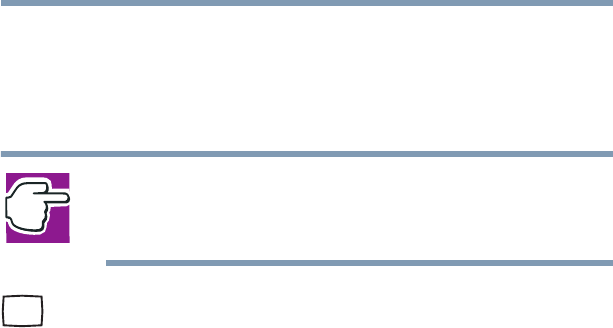
98
Expansion Options
Using an external monitor
5.375 x 8.375 ver 2.3.2
Connecting the monitor
1 If you are connecting the monitor to your computer or to
the optional Slim Port Replicator, and the replicator is
connected to your computer, turn off the computer.
NOTE: Make sure the computer is off before you attach the
monitor. Connecting a monitor with the computer’s power on may
damage the monitor, the computer, or both.
2 Connect the monitor’s video cable to the RGB (monitor)
port on the computer or the optional Slim Port Replicator.
3 Connect the monitor’s power cable to a power source.
4 Turn on the computer.
5 Turn on the external monitor.
The computer will use the external monitor and disable the
built-in display panel.
If your external monitor can display high-resolution video
modes (greater than 800 x 600), you can take advantage of
this feature by changing the video mode in Display Properties
in the Control Panel.
Using both screens simultaneously
You can view information on the computer’s built-in display
and an external monitor simultaneously. The size of the
display image on each screen depends upon the video mode.
To send information to both the built-in display panel and the
external monitor, change the Power On Display option.
To do this using the hot key:
1 Press
Fn and F5 simultaneously.
2 While holding down
Fn, press F5 repeatedly until you get
the desired setting.
